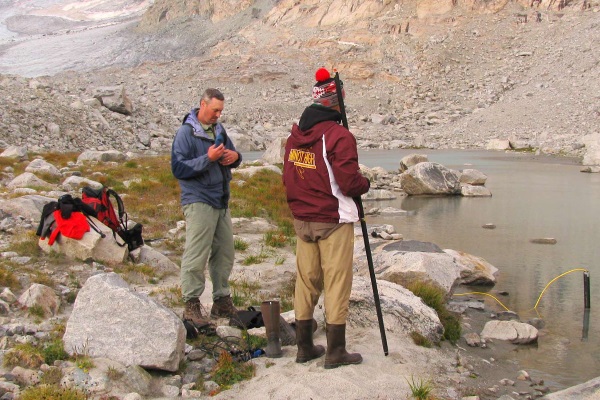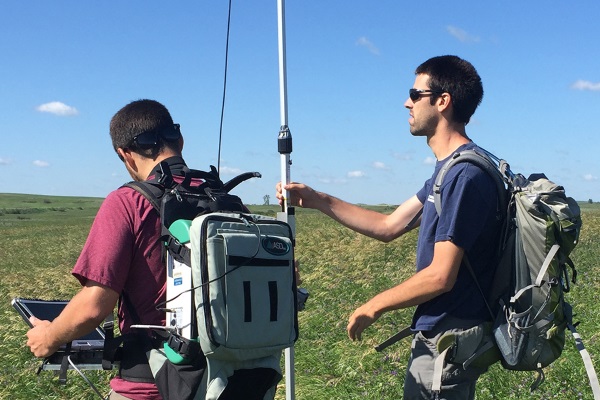
Earth System Science & Policy
Address today's environmental and sustainability challenges to define and shape tomorrow's positive and sustainable changes.
Combine social and natural science in an interdisciplinary education to lead the way in solving complex human-driven impacts affecting a sustainable Earth system and a prosperous economy.
Our Programs

Help solve and manage complex human-driven changes affecting Earth system sustainability.

Help drive new Earth system science and policy research to advance knowledge and develop original solutions to global sustainability challenges.

Lead the way in creating a sustainable stewardship of our planet by seeking balance between environment, society, and economy.
What sets UND's Earth System Science & Policy Department apart?
- An original approach that bridges theory with practice, global and local perspectives, and scientific and social disciplines
- Learn from a student-structured curriculum, a multi-disciplinary teaching approach, and experiential learning environments
- Students are equipped with skills and knowledge in natural science, environmental policy, and economics to solve real-world issues through a holistic approach
- Prepares students for a range of careers in industry, government agencies, and higher education
- Mastering skills needed in the job market such as geospatial tools (GIS, GPS, remote sensing), computing skills (such as Python and MatLab), natural economics, environmental science, and policy tools (such as cost/benefit analysis, writing a policy memo, etc.)
job placement rate
average job placement time
Mission
To provide an integrated and creative learning environment that fosters intellectual growth, critical thinking, and practical engagement in research and sustainable management of the Earth system and resources
Objectives
The objectives of the program in Earth System Science & Policy include:
- student-structured curriculum
- research driven by societal needs and values
- multidisciplinary education
- learning within teams
- experiential learning
- leadership to create a future proactively
- unification of economic security, ecological integrity, and social equity
- cultural inclusiveness
- regional focus, but nested within global systems
Recent News




